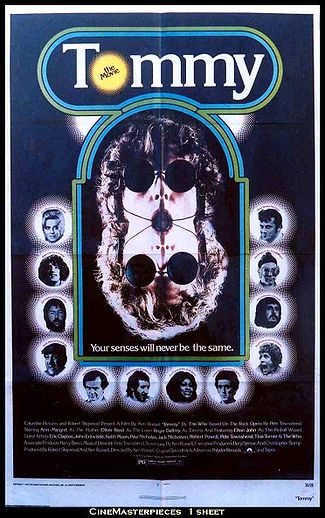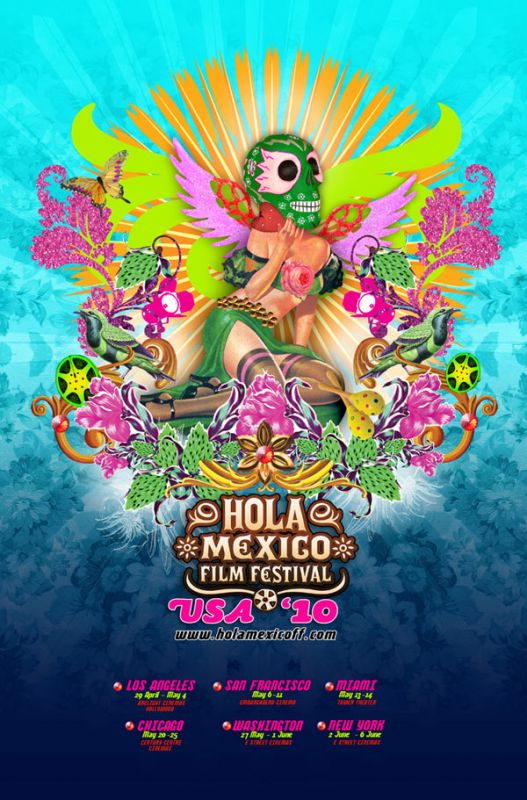|
|
||
|
Pro Tools
FILMFESTIVALS | 24/7 world wide coverageWelcome ! Enjoy the best of both worlds: Film & Festival News, exploring the best of the film festivals community. Launched in 1995, relentlessly connecting films to festivals, documenting and promoting festivals worldwide. Working on an upgrade soon. For collaboration, editorial contributions, or publicity, please send us an email here. User login |
Arto Halonen Gives Blood for "A Patriotic Man""History repeats itself, "the first as tragedy, then as farce." Finnish director Arto Halonen apparently drew on Marx's famed maxim when he made his 2012 documentary about doping in cross-country skiing, When Heroes Lie, and followed it up with this year's black comedy on the same topic, A Patriotic Man (Isänmaallinen mies). How fitting that these two films also explore individuals as vehicles of collectives -- and how this ideal can zigzag off-piste. A Patriotic Man follows the misadventures of Toivo (Martti Suosalo), a pathetic underachiever except for his hemoglobin-rich blood, which is recruited to power the Finnish ski team on the eve of the World Championships in Central Europe and the Olympic Games in Canada in the 1980′s. Toivo's career gets its own transfusion while he also enters into a game of seduction with the bright new hope of the team, blonde temptress Aino (Pamela Tola).
Both films hit a sensitive nerve among Finns, six members of whose cross-country ski team were caught in 2001 using a blood plasma expander to goose their performance at the FIS Nordic World Ski Championships in Lahti. When I reached Halonen in Helsinki the day after A Patriotic Man opened in Finnish theaters, "tragic" and "traumatic" were how he described his nation's experience of being busted a dozen years earlier. "In many countries their heroes will be caught and the truth will come out, but for the small nation it's a big thing and Finns feel they've been sacrificed by this 2001 event," he said. "For many people it was just bad luck to be caught," he continued, explaining that the moral lessons eluded a broad swath of the victory-obsessed culture that requires heroes at any cost. Peering over this slippery slope, Halonen set out to explore the ecosystem of competition in which one man's crime is another man's patriotism. When Heroes Lie aired on Finnish TV it to a national rumpus, critical acclaim and unprecedented ratings that'd be the envy of any athlete. Halonen was no stranger to kudos. He'd racked up a Finland Prize honoring his artistic career, the European Union's Humanitarian Award and a lifetime achievement medal from the Thessaloniki Documentary Festival, to name but three. International Documentary Festival Amsterdam (IDFA) has screened five of his films, including Shadow of the Holy Book (2007), Pavlov’s Dogs (2006) and The Stars’ Caravan (2000), which vied in its official competition. Halonen's debut fiction feature, Princess (2010), not only garnered awards, it was one of the highest-grossing Finnish films of the past decade. Stateside, Halonen's films have been awarded at numerous festivals, and now A Patriotic Man is making the rounds of Harlan Jacobson's curated national series Talk Cinema.* Halonen spoke with me about his latest film while battling his own competitive impulses surrounding the film's opening-weekend box office. Q: What drew you to sports as a way of critiquing the larger culture? AH: The main reason I made both of these films is to show the double-sided aspect of life and the culture in which we have somehow been taught from the mother's milk to be competitive. To get something we just have to be better than someone else. It's not the world of democratic community; it's the world of being better. This starting point has led us to being a certain way. We usually can't see who we really are. In sports we can see it so clearly, but in other aspects of life it's more hidden. Q: Can competition be a good thing? AH: Yes, I must say that natural competition is very good for us. But competition that is not healthy for the individual and the world is the kind of discussion I want to bring up. It's very important to be motivated and you need sparks for that. I wouldn't blame individuals because it's throughout the society. We have individuals who are responsible for doing certain things, but it's the whole system. Our patriotic man is one man who is confronting the system. It's very difficult to be against it when the whole world and these people are functioning this way. Q: How have these themes cropped up in some of your other films? AH: Shadow of the Holy Book is a documentary I made about Turkmenistan, which is one of the worst dictatorships in the world and one of the richest countries in oil and gas. Western companies have been doing horrible things there, supporting this dictator only to get the business. It's a parallel of what happens morally in the sports world and also in politics -- how far we are willing to go when it comes to money and glory. Our ethics totally change in front of these things. Some part of this society really accepts this, even if it doesn't say it. But somehow we are built for that, and it's something we should realize better if only to try to develop our personalities in an opposite direction. Q: And how about in Princess? In Princess, the protagonist is mentally ill but she recreates the world to brings happiness for other people. The system was trying to take an illusion of what a nation is. She kept saying she's a princess, but at the same time she was trying to make people happy and heal them when the system was trying to do something against them and get her down. It tells about the power of the differences and how they can bring something beautiful. Q: A Patriotic Man is a sharp social critique, yet you also bring a human touch -- even to the disgraced characters. How did you balance these soft notes with black comedy? AH: The film tried to be sympathetic. In Finland a lot of people found that we treated the characters very nicely. But when the documentary opened theatrically, people were scared to go see it. The subject was a huge news story -- people didn't want to to see it in theaters. But when it came to television, it broke records. You didn't want to see it in public, but you wanted to see it privately in your home. With A Patriotic Man we keep saying it's fiction and it's funny, but we'll see. Mainly the critics have been very positive. After the weekend we'll see if people are still traumatized. Q: How did you create an aesthetic for A Patriotic Man to reflect human yet humorous qualities? AH: I always start with the cinematographer, trying to explain what I want. Then we try together to create the world that we're filming, and that helps me to conceptualize the costume and art direction. I try to find the right words; it's not always easy. We wanted to create this '80s style and colors. You can use it in a funny way if you use it with the colors. But I wanted to make it realistic and warm. In some way they're very warm colors even if they're funny. I wanted to support the two things: both the comical elements but to bring this warm and humanistic and humoristic side for the characters. Q: Toivo complains that he's being sucked dry, and at one point the female skiier whom he's keen on helping, Aino, launches at his neck with a shriek and flashes her bloodied teeth. What led you to wink at the vampire movie genre? AH: Aino is representing the nation and she's sucking Toivo's neck. I liked this story about the nation sucking. I saw this strange connection with the state as vampire, On a symbolic level, that was something I was really thinking about from the beginning. The country and Aino are both sucking this guy dry and he's giving his blood and soul for the country. So he's really a patriotic man. Q: What are some of the references in A Patriotic Man that a Finnish audience would catch, but would likely be lost on Americans? AH: Some years after the six skiiers were caught, this Finnish coach started to talk -- the first coach in the world to reveal omertas...In the film, when the blood bag is discovered at the Yugoslavia border, the tall Finnish skiier Marjatta says, "amateur acting." In real life, the coach said at the press conference after the six were caught, "This is amateur acting." And when two guys are in the police station and the head of the team is coming to take them, the guard says, "I'm terrible, terrible sorry." In real life, the head of the Finninsh team, who was also a lawyer, started to talk in English. His way of speaking was awful. He said, "Terrible, terrible sorry." And there is a coach, Immo Kuutsa. who was very big in the 70s, 80s and 90s, and he's still very active. He's a very strange guy. When I interviewed him he suddenly asked me, "What is dialectics? When the Finns see the fictional Ilmo they immediately say, "This is Immo Kuutsa." We have a media tactic of saying it's in people's minds. But there are certainly elements, like this strange coach, that are based in reality. It's a lot of fun for people to try and identify personalities from real life. Q: Are you using patriotism as a veiled reference for a certain political tendency? AH: Patriotism develops certain sides of yourself. I wouldn't like to chain it to any parties, but traditionally in Finland if you talk about skiiers, they're traditionally from the center or right wing. Q: How did dishonored former Canadian sprinter Ben Johnson become involved in the project? AH: When Heroes Lie was in IDFA's Reflecting Images: Masters section in 2012. The English director Daniel Gordon was showing 30 for 30: 9.79*, his documentary about Ben Johnson when they caught him doping in the 100 meter race at Seoul in 1988. Daniel Gordon called me because our films were similar. We shared information. He mentioned that Ben Johnson was going to be at his screening. When Heroes Lie co-writer Kevin Frazier suggested that we ask him for a cameo. I thought that he could be a very good taxi driver. In Slovenia, where we filmed, I went every evening to dinner with Ben and we shared a lot of information about doping. Q: What are the burdens of being a true patriotic man, such as Ben Johnson? AH: It's always so horrible to meet individuals who are carrying this problem of society on them. The other representives of society just keep on using. It's so unfair. It makes people so bitter and weak and it makes it very difficult to get back to society. Ben is finding his way back and he is doing fine now -- he's doing a campaign against doping and telling people about his story -- but it's so heavy. It's this omerta system; people don't talk about it. He's the right person to talk about things. Q: How did the story resonate with you as a filmmaker vying in the competitive world of grants and awards? AH: This story put me in front of the mirror to ask myself about my competitive side as an artist -- what kind of methods I've learned and how twisted the artistic world is and that I and others are. We represent a lot of warm, beautiful ideologies, but we also have this tough, competitive side and we're crushing each other. So I have to confront this and realize what I am. If I'm doing this film I have to ask myself this question. My patriotism is expressed in the fact that I'm ready to do a lot of things for my patriotic man idea with myself and a lot of artists. We are thinking that we are doing things for good purposes, and we are, but very often we are serving ourselves. If we could realize more often our real motivations, I believe some people are more enlightened, they're not so selfish. But competition can easily become corrupted. Some people are healthy in their competition. All of us should watch the mirror. * For full disclosure, I moderated Talk Cinema's post-screening discussion with Arto Halonen at Boston's Coolidge Corner Theatre, where he reported via video skype that the soft opening weekend box office suggested that the 2001 doping scandal remains a sore topic for Finnish audiences. 10.12.2013 | Laura Blum's blog Cat. : A Patriotic Man ARTO HALONEN Ben Johnson black comedy Documentary doping Finnish cross-country skiing vampire When Heroes Lie Independent
|
LinksThe Bulletin Board > The Bulletin Board Blog Following News Interview with EFM (Berlin) Director
Interview with IFTA Chairman (AFM)
Interview with Cannes Marche du Film Director
Filmfestivals.com dailies live coverage from > Live from India
Useful links for the indies: > Big files transfer
+ SUBSCRIBE to the weekly Newsletter Deals+ Special offers and discounts from filmfestivals.com Selected fun offers
> Bonus Casino
User imagesAbout Laura BlumThe EditorUser contributions |






























